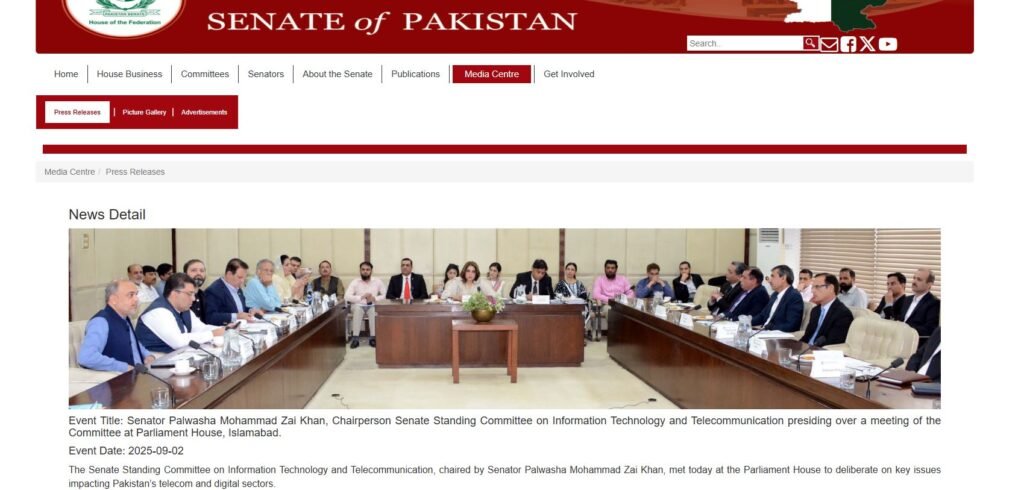The Senate Standing Committee on IT and Telecom, chaired by Senator Palwasha Khan, convened in Islamabad. Officials from the National Cyber Crimes Investigation Agency (NCCIA) briefed lawmakers on the growing issue of online fraud.
They highlighted how certain loan apps are ensnaring users in extreme debt through widespread fraudulent campaigns across Pakistan.
Greedy loans and blackmail by fraudulent loan apps
NCCIA officials revealed that some loan apps impose exorbitant interest rates, reaching as high as 1,800 percent, while also accessing users’ phone galleries and contacts.
As a result, borrowers face threats and public shaming.

For instance, individuals who borrowed as little as Rs 5,000 for essentials like food are often trapped in a cycle of late fees, abuse, and fear.
Officers noted a sharp rise in complaints across cities and small towns, with victims including students, laborers, and women running home-based businesses.
Regulators tighten the rules on loan apps
The Securities and Exchange Commission of Pakistan (SECP) first licensed digital lenders in 2020 with minimal conditions. However, in response to rising fraud, the SECP has revised its framework to strengthen regulatory scrutiny over these apps.
Interest rates are now capped at 100 percent, and apps are prohibited from scraping contacts, photos, and messages. Over 90 percent of fake or non-compliant apps have been shut down.
Additionally, the SECP flagged misleading social media ads promising interest-free loans, many of which misuse the names of reputable charities and firms to appear legitimate.
The committee urged strict enforcement, swift takedowns of fraudulent ads, and public awareness campaigns in Urdu and regional languages.
How the loan apps scams work and safety steps?
Scammers often lure users to click links or install apps from unofficial sources, requiring small upfront payments for processing or insurance fees.
They also demand scans of CNIC and bank details. Once money or data is shared, the lenders either disappear or begin harassing victims.
To stay safe, citizens should avoid unknown links and use only licensed apps. They should never share one-time codes or full card numbers.
Scams should be reported to NCCIA helplines and the cybercrime wing. Additionally, users are advised to keep phone permissions limited and delete apps requesting access to galleries or contacts.
Lawmakers emphasized a clear goal: clean up digital lending, protect citizens, and restore trust in online finance.
For more: Sindhi nationalist parties reject Gandapur remarks over Kalabagh Dam





